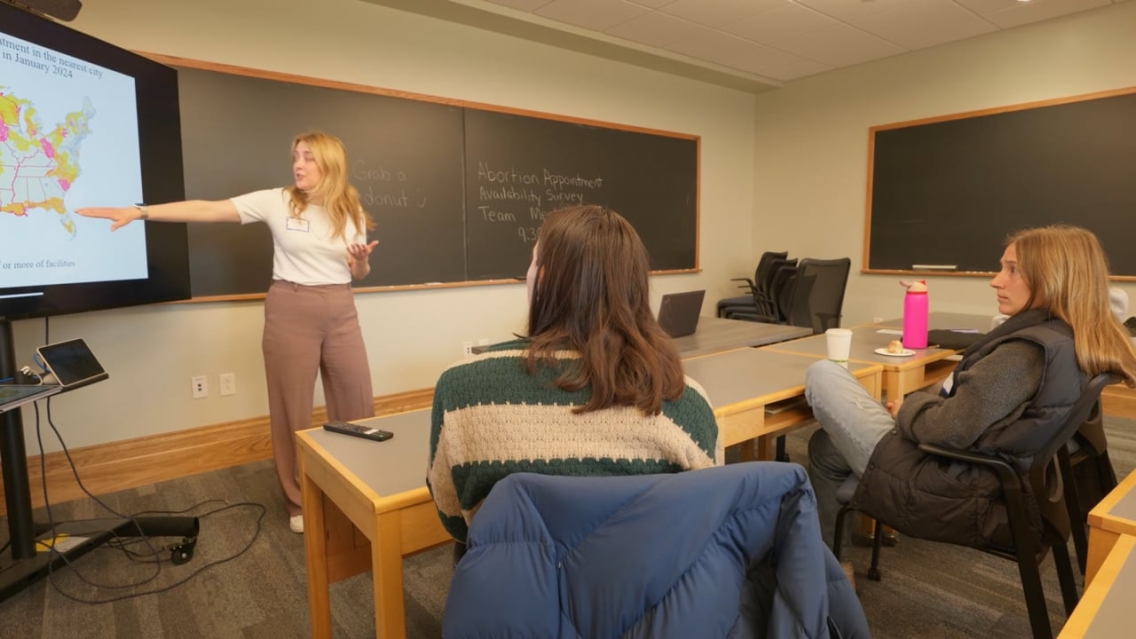Driven by Data
Driven by Data
“I hope our students have is the ability to understand how complicated forces interact with each other and the ability to adapt and learn and respond as the world changes around them.”
Caitlin Myers is an economics professor who grew up in a struggling, racially segregated town in Georgia. Her experiences led her to study economics as a way to understand how historical and societal forces can impact people’s lives.
As a professor, she sees her role as equipping students with the skills and knowledge to pursue their passions and navigate an ever-changing world filled with technological progress and challenges.
Transcript
I am Caitlin Myers. I am the John G. McCullough Professor of Economics. I spent about half of my childhood in La Grange, Georgia, which was at the time a very economically depressed, struggling textile mill town on the Georgia-Alabama border.
Into the early nineties, La Grange maintained segregated facilities, including a segregated pool, a segregated library. The public schools were kind of de facto segregated. I went off to college and I started studying economics, and I realized that I had a lot of questions about whether I just happened to come from a town with a history of racism or whether what I had experienced was representative of more places in the country and how that might affect people’s lives.
I got really turned onto economics when I realized that it was a field that had a lot of powerful tools to answer my questions, and in particular that those tools came from analyzing data. That’s why I fell in love with the discipline. For me now as a professor, I see my role as a helping provide students with the advice and the skills to support their pursuit of their passions and their questions.
We are living in a moment of head-spinning change, incredible technological progress, an incredible expansion of A.I. and access to large language models. There’re all of these forces around us, and I think none of us have a crystal ball for exactly what world we’ll be living in in five years, 10 years, 50 years.
But what I hope our students have is the ability to understand how complicated forces interact with each other and the ability to adapt and learn and respond as the world changes around them. I think that’s really what a liberal arts education is about. It’s [about] providing students not just with a set of facts that they need to know to go out in the world and be educated people, but a set of skills that they need to go out in the world and address and engage challenging problems.
